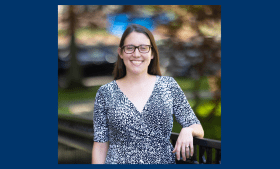News & Stories
The stories of the Faculty of Arts and Sciences: the achievements and activities of our faculty, departments, and programs.
Search & Filter
Applied Filters:
-
Amid longstanding concerns that emigration causes “brain drain,” research by Mushfiq Mobarak, Jerome Kasoff ’54 Professor of Management and Economics, and coauthors identifies more complex dynamics at play.

-
Costas Meghir is helping children reach their full developmental potential through cost-effective and scalable programs.

-
Yale economists Rohini Pande, Nicholas Ryan, and coauthors evaluated the world’s first cap-and-trade market for particulate matter, finding it significantly reduced emissions and lowered costs.

-
Lauren Falcao Bergquist, Assistant Professor of Economics and Global Affairs at Yale and an affiliate of the Economic Growth Center, has received a grant from the National Science Foundation (NSF) to support her research on agricultural supply chains in Uganda and other lower-income countries.

-
Strack, a scholar of microeconomic theory who has achieved key advances in the field of game-theory and behavioral economics, joined the Yale faculty in 2019.

-
Kaivan Munshi, a global leader in the field of economic development, joined the Yale faculty in 2019.

-
Incoming FAS faculty member Mayara Felix studies how international trade and market-oriented policies can improve the lives of everyday people in developing countries.

-
This message announces the winners of the 2023-2024 Heyman and Greer prizes for scholarship and the Faculty of Arts and Sciences Dean’s Award for Inclusion and Belonging.
-
The Stanley B. Resor Professor of Economics and History at Yale looks back on her illustrious career ahead of a mini-conference in honor of her research.
-
Recognized as a leading American economist under 40, Strack’s work solves long-standing open questions in economic theory.